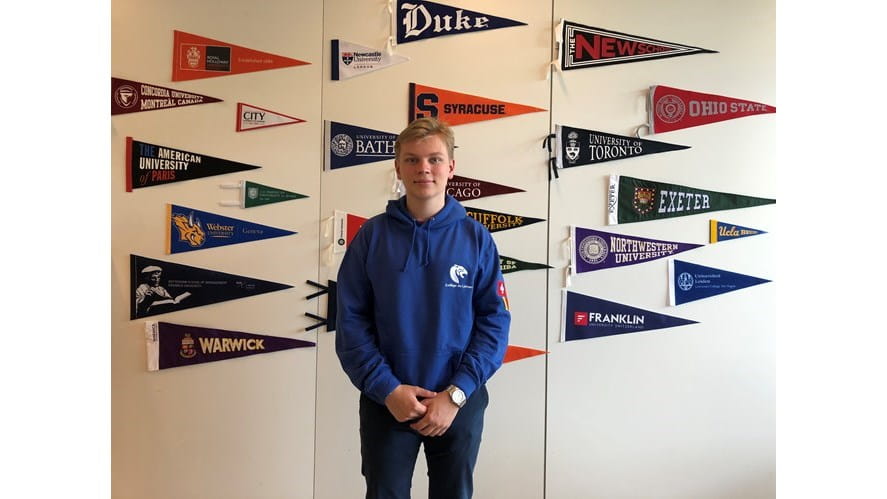We use cookies to improve your online experiences. To learn more and choose your cookies options, please refer to our cookie policy.

We are incredibly proud of our recently graduated IB student Nicolas for his acceptance to the prestigious Oxford University. Find out more about his tips and learning experiences in the interview below.
Tell us what curriculum you are enrolled in at CDL.
I am enrolled in the International Baccalaureate curriculum, in which I study Economics, Mathematics and English A at Higher Level, alongside German B, French A and Chemistry at Standard Level.
How did your aspirations for Oxford develop?
Once I decided that following higher education in Switzerland wasn’t what I necessarily wanted to do, I started looking into various options abroad. I didn’t believe that the US was suited for me, and I started looking into the UK. I was generally interested in the field of economics and began browsing options. Thanks to several friends, I discovered the PPE (Philosophy, Politics and Economy) programme, particularly that of the University of Oxford and immediately loved the course.
What interview specific information could you share with us regarding Oxford?
The Oxford interviews are often regarded as daunting for many candidates, so I will attempt to give a few brief tips. These tips mainly apply to social sciences, but I am sure that they can be transposed into other fields. Firstly, candidates must understand that the interview isn’t a test to assess their skills or knowledge. They are designed for tutors to evaluate whether or not you are adapted to the tutorial system and how teachable you are. Therefore, be concise, be mindful of various opinions, don’t be afraid to ask for clarifications and be self-aware that you might make some mistakes (and that’s okay!). Alongside this, what may seem very basic yet very odd: smile. Have fun, laugh around, discuss the topic in different ways if you can.
When it comes to my experience, I was definitely taken out of my comfort zone. The Economics tutor told me himself, “I hate it when students come in these interviews with a bunch of prepared answers, so I try to take some questions completely outside the field of economics and bring them back to our centre of interest”. Just hearing this was a complete shock! He then proceeded to ask a question with two functions representing the behaviour of birds around a mountain and how that affects the number of insects they can capture. This led to a discussion about the distribution of goods, allocative efficiency, market equilibrium, etc. Even if you are lucky enough to get a question on these topics, most tutors will realize what you are doing and won’t appreciate it.
Another I’d like to give is for candidates to avoid constantly assessing their performance. Generally, the best thing you can do is to stay enthusiastic and enjoy the discussion you are having with these top-tier professors because this is a fantastic opportunity. Most tutors will look for critical thinking and a smile, so stay concise and have fun.
How did you find the application process?
There is too much pressure surrounding the application process where candidates strive so hard for success that they lose the essence of their passion, which eventually leads them to fail their application. I mainly suggest trying your best for the entrance exams. Obtaining a good score alongside solid teacher recommendations already gives you good chances to get an interview. However, when it comes to the personal statement and the interview, this relies on a combination of academic ability (once again, not knowledge) and passion. Therefore, you must be clear regarding how much you are interested in this field academically, and how able you are to become a scholar of it.
What advice would you give any aspiring Oxbridge candidate?
I can’t stress this enough: get in touch with your university. Create a LinkedIn profile and try to connect to hundreds of people studying your course or a similar course. Ask them questions. Try to find an alumnus who may want to help you set up a mock interview. Ask for feedback on your personal statement. Once you’ve picked a college, check who the tutors are and what they research. If they’ve published concise work, take a look at it. Getting this “insider” information will allow you to get a much clearer understanding of how it all goes down.